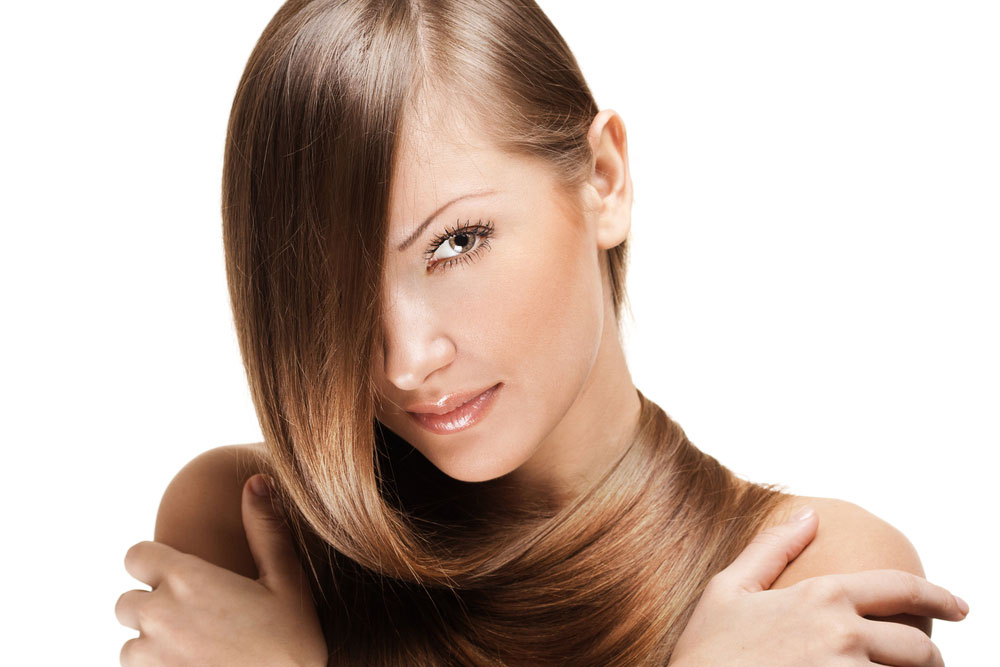Hair Concerns Keep Some Women from Gym

Get the world’s most fascinating discoveries delivered straight to your inbox.
You are now subscribed
Your newsletter sign-up was successful
Want to add more newsletters?

Delivered Daily
Daily Newsletter
Sign up for the latest discoveries, groundbreaking research and fascinating breakthroughs that impact you and the wider world direct to your inbox.

Once a week
Life's Little Mysteries
Feed your curiosity with an exclusive mystery every week, solved with science and delivered direct to your inbox before it's seen anywhere else.

Once a week
How It Works
Sign up to our free science & technology newsletter for your weekly fix of fascinating articles, quick quizzes, amazing images, and more

Delivered daily
Space.com Newsletter
Breaking space news, the latest updates on rocket launches, skywatching events and more!

Once a month
Watch This Space
Sign up to our monthly entertainment newsletter to keep up with all our coverage of the latest sci-fi and space movies, tv shows, games and books.

Once a week
Night Sky This Week
Discover this week's must-see night sky events, moon phases, and stunning astrophotos. Sign up for our skywatching newsletter and explore the universe with us!
Join the club
Get full access to premium articles, exclusive features and a growing list of member rewards.
Hair care concerns may keep some African-American women from exercising routinely, new research suggests.
The study, which surveyed African-American women in North Carolina, found that close to 40 percent of respondents said they sometimes avoided exercise because of their hair. About a third said hair concerns prevented them from working out as often as they would like.
Women who exercised less frequently because of their hair were less likely to meet recommendations for weekly physical activity, the researchers said.
Many African-American women straighten their hair with heat or other products, a process that takes time and money, and can be undone with exposure to sweat or moisture. In addition, hair straightened with chemical relaxers is fragile, which precludes frequent washing. As a result, women who straighten their hair may want to avoid sweating — and, thus, exercising, said study researcher Dr. Amy McMichael, a dermatologist at the Wake Forest School of Medicine in Winston-Salem, N.C.
As a group, African-American women are among the least likely to meet physical activity guidelines (at least 150 minutes of moderate exercise a week is recommended), compared to other ethnic groups, the researchers said. And about four out of five African American women are overweight or obese, according to The U.S. Department of Health & Human Services.
Therefore, strategies to promote physical activity among African-American women must address hair care issues, the researchers said.
Hall and colleagues surveyed 103 African-American women ages 21 to 60 who visited the university's dermatology department in October 2007.
Get the world’s most fascinating discoveries delivered straight to your inbox.
Sixty-two percent of the women had a chemically relaxed hairstyle, and most washed their hair every one to two weeks.
All respondents said exercise was important, but about 38 percent of them said they sometimes avoided exercise because of their hair. Thirty-six percent said they avoided swimming, and 29 percent said they avoided aerobic and gym activities. Half said they had considered modifying their hairstyles to accommodate exercise.
The results were originally presented at a meeting in 2007. Surgeon General Dr. Regina M. Benjamin raised the issue again last year, telling the New York Times, "When you’re starting to exercise, you look for reasons not to, and sometimes the hair is one of those reasons."
The study also found 32 percent of respondents said sweating or humidity exacerbated scalp itching, and many reported hair and scalp symptoms, such as hair breakage and flaking,
"The high percentage of African-American women with baseline scalp complaints suggests that dermatologists need to consider these symptoms when providing care for African-American women," the researchers wrote in the Dec. 17 issue of the journal Archives of Dermatology.
The hair care issue is not easily solvable, McMichael said. "Somebody might say, 'Oh, just cut your hair,' but that does not make sense. We have to figure out better ways to address this issue," she said.
One possible solution is that women do less strenuous exercise immediately after washing their hair, and more aerobic exercise closer to the time they wash their hair, said McMichael, who is African American. Others find that certain hairstyles, such as ponytails and braids, are more conductive to workout outs, she said.
But women should not feel as though they have to compromise with their appearance, McMichael said.
"Part of exercising is to feel more healthy and put one's best impression forward," McMichael said. "Dermatologists, other physicians, and the hair care industry need to move forward in addressing the needs of women with innovative hair care products, styling methods, and exercise program regimens."
Because the study was conducted in one region, it's not clear whether the results apply to women across the country, the researchers said. In addition, because the study was conducted at a dermatology clinic, the prevalence of scalp conditions may be greater than in the general population.
Pass it on: Hair care issues may prevent some African-American women from exercising as often as they would like.
Editor's Note: This article was updated on Dec. 18 was updated to correct a name of a researcher quoted, and to include additional quotes from Dr. Amy McMichael.
Follow Rachael Rettner on Twitter @RachaelRettner, or MyHealthNewsDaily @MyHealth_MHND. We're also on Facebook & Google+.

Rachael is a Live Science contributor, and was a former channel editor and senior writer for Live Science between 2010 and 2022. She has a master's degree in journalism from New York University's Science, Health and Environmental Reporting Program. She also holds a B.S. in molecular biology and an M.S. in biology from the University of California, San Diego. Her work has appeared in Scienceline, The Washington Post and Scientific American.
 Live Science Plus
Live Science Plus










